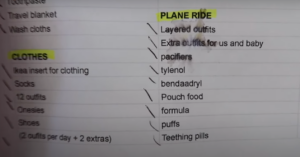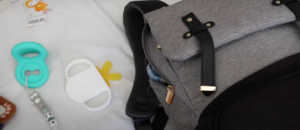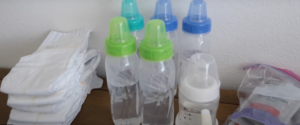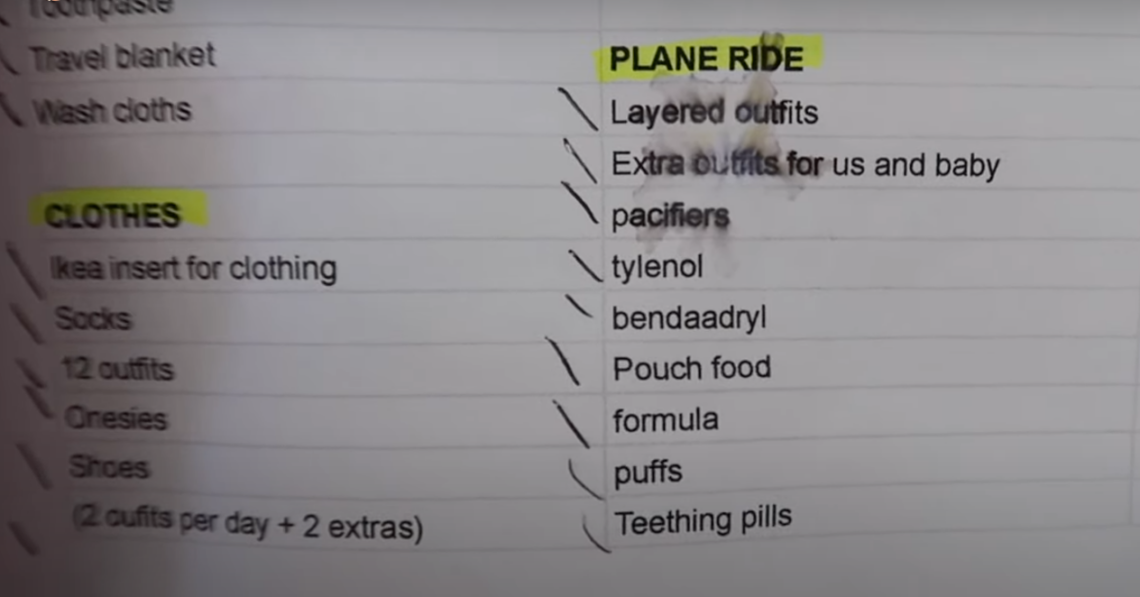 Traveling for a week with a newborn requires careful planning and thoughtful packing to ensure the baby’s needs are met and the trip goes smoothly. The first step is to pack enough milk to last the duration of the journey. If breastfeeding, it’s essential to plan for regular pumping sessions, which means bringing a portable breast pump, extra bottles, and a cooler with ice packs as seen on this site to keep the milk cold. If formula-feeding, pre-measuring powdered formula into individual containers can make the process easier, along with a travel bottle warmer for when it’s time to feed. Whether you’re bringing breast milk or formula, be sure to have a good stock of bottles, nipples, and bottle-cleaning supplies such as a bottle brush, dish soap, and sanitizing wipes for quick clean-ups on the go.
Traveling for a week with a newborn requires careful planning and thoughtful packing to ensure the baby’s needs are met and the trip goes smoothly. The first step is to pack enough milk to last the duration of the journey. If breastfeeding, it’s essential to plan for regular pumping sessions, which means bringing a portable breast pump, extra bottles, and a cooler with ice packs as seen on this site to keep the milk cold. If formula-feeding, pre-measuring powdered formula into individual containers can make the process easier, along with a travel bottle warmer for when it’s time to feed. Whether you’re bringing breast milk or formula, be sure to have a good stock of bottles, nipples, and bottle-cleaning supplies such as a bottle brush, dish soap, and sanitizing wipes for quick clean-ups on the go.
Sleeping Preparations
The next most important item is a safe sleeping arrangement. A pack n play is a must-have for any trip with a newborn. It provides a familiar and safe place for the baby to sleep or nap and ensures the baby stays off the floor, which is especially important in unfamiliar places. Make sure to pack a portable crib mattress, fitted sheets, and a waterproof mattress protector. Additionally, it’s wise to bring a lightweight sleep sack or swaddle to keep the baby comfortable, as well as a few of the baby’s regular sleep items, like a favorite blanket or pacifier, to help maintain a sense of routine.
Minimize Toys & Bulky Items
 Small toys and comfort items can make a big difference for both the baby and parents during travel. Bring along a few soft, lightweight toys or teethers that are easy to clean and won’t take up much space. A portable white noise machine or a soothing sound app can help provide a sense of calm during naps, especially in noisy hotel rooms or other unfamiliar places. Some families find that familiar items like a soft stuffed animal or a small lovey help their baby feel secure in new environments.
Small toys and comfort items can make a big difference for both the baby and parents during travel. Bring along a few soft, lightweight toys or teethers that are easy to clean and won’t take up much space. A portable white noise machine or a soothing sound app can help provide a sense of calm during naps, especially in noisy hotel rooms or other unfamiliar places. Some families find that familiar items like a soft stuffed animal or a small lovey help their baby feel secure in new environments.
Your Own Essentials
In addition to the baby’s needs, consider your own essentials. You’ll want to bring a diaper bag stocked with your items, such as your own personal toiletries, medications, and any snacks or drinks for the journey. A lightweight stroller or baby carrier will also come in handy for navigating through airports or while sightseeing.
 Lastly, don’t forget documents or health information. Pack the baby’s pediatrician contact details, emergency information, and any medication or prescriptions the baby might need during the trip. If traveling by air, make sure to check the airline’s guidelines for traveling with a newborn, including restrictions on breast milk or formula. Proper preparation is key to a successful trip, ensuring that both you and your baby stay comfortable, safe, and happy throughout your travels
Lastly, don’t forget documents or health information. Pack the baby’s pediatrician contact details, emergency information, and any medication or prescriptions the baby might need during the trip. If traveling by air, make sure to check the airline’s guidelines for traveling with a newborn, including restrictions on breast milk or formula. Proper preparation is key to a successful trip, ensuring that both you and your baby stay comfortable, safe, and happy throughout your travels

 Additionally, au pair training often includes practical lessons on child safety, nutrition, and health—knowledge that is directly transferable to motherhood. You also gain experience in balancing the needs of the child with household responsibilities, managing time effectively, and communicating with parents or guardians to ensure a cohesive caregiving approach. Moreover, spending time immersed in a different culture can teach flexibility, patience, and problem-solving, as you learn to navigate new environments and handle unexpected situations. This experience can be especially valuable for new mothers, helping them feel more confident and capable when they embark on their own parenting journey. Ultimately, being an au pair provides a hands-on, real-world foundation that can enhance the skills and emotional preparedness needed for motherhood.
Additionally, au pair training often includes practical lessons on child safety, nutrition, and health—knowledge that is directly transferable to motherhood. You also gain experience in balancing the needs of the child with household responsibilities, managing time effectively, and communicating with parents or guardians to ensure a cohesive caregiving approach. Moreover, spending time immersed in a different culture can teach flexibility, patience, and problem-solving, as you learn to navigate new environments and handle unexpected situations. This experience can be especially valuable for new mothers, helping them feel more confident and capable when they embark on their own parenting journey. Ultimately, being an au pair provides a hands-on, real-world foundation that can enhance the skills and emotional preparedness needed for motherhood.